Dr. Andrew Huberman’s supplement stack
Dr. Rhonda Patrick recently interviewed Dr. Andrew Huberman (neuroscientists and host of The Huberman Lab podcast).
While they discussed many topics related to physical health, brain health, athletic performance, and Dr. Huberman’s daily routine, one of the most interesting was hearing about his daily supplement protocol.
What does he take for hormonal health? Digestion? Basic nutrient support? In this article, we’ll break it all down and discuss the science and potential benefits behind each of his supplements of choice.
Let’s get started.
Tongkat Ali
What it is
Tongkat Ali (E. longifolia), also known as longjack or Malaysian ginseng, is a plant that’s been used in Southeast Asia’s traditional medicine for centuries.
What are the benefits
While several potential benefits are associated with Tongkat Ali, including enhanced mood, body composition, and treatment against infections, its primary indication is testosterone support male fertility.
Specifically, research shows that Tongat Ali may help to boost testosterone in men who are deficient in this hormone and thus also assist in low-testosterone symptomatology such as erectile dysfunction and low libido.
One study found that taking 200 mg of Tongat Ali extract daily for one month significantly improved men’s testosterone levels, bringing about 90% of participants back into the normal range.
Dr. Huberman’s take
Huberman takes Tongkat Ali as in the morning for “freeing up testosterone and for luteinizing hormone stimulation.”
In his words: “I’ve been on it for years, it works great, it’s shifted my testosterone and free testosterone in the right direction subtly and meaningfully, for me, it works. Some people have not had good results with it; some people have.”
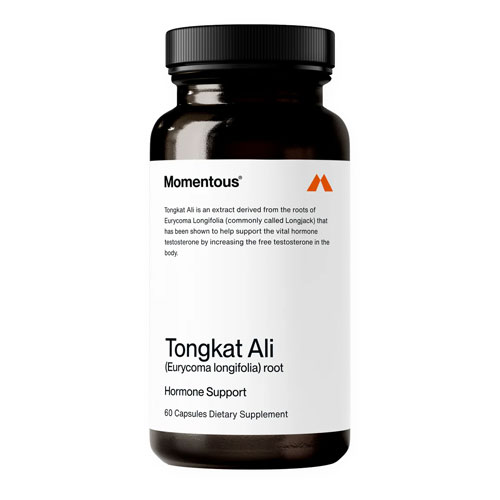
Fadogia agrestis
What it is:
Fadogia agrestis, also known as Black Aphrodisiac is a plant native to Nigeria.
What are the benefits:
Much like Tongat Ali, Fadogia agrestis is used to support healthy testosterone levels and is traditionally used to treat low-testosterone conditions like erectile dysfunction and low libido. That said, Fadogia agrestis lacks the clinical data that Tongat Ali has, with no published human studies to date.
Dr. Huberman’s take:
Huberman takes Fadogia agrestis along with Tongat Ali in the morning for his daily testosterone support.
Fish oil (EPA and DHA)
What it is:
EPA and DHA are essential fatty acids found abundantly in fish oil.
What are the benefits:
Omega-3 fatty acids, such as EPA and DHA, have been studied for their positive impact on neurological health, eye health, heart health, inflammatory conditions, and more. While our bodies require a certain amount of fat to function optimally, the ratio of the fatty acids we consume is crucial. The Western diet is loaded with sources of omega-6 fats but severely lacking in omega-3s to balance them out.
Research shows that omega-3 fats may improve neurological conditions such as mood disorders, ADD and ADHD, and dementia. They’ve also been shown to improve metabolic conditions such as heart disease, obesity, and blood sugar abnormalities.
Due to their anti-inflammatory nature, omega-3 fats have also been studied for their positive impact on immune disorders such as autoimmunity and asthma.
Dr. Huberman’s take:
Huberman tries to take at least a gram but aims for two grams of EPA in the form of fish oil supplements every day.
In his words: “I feel better, my blood work looks good, so (taking fish oil) is something I really strive to do.”

Ginger
What it is:
Ginger is a root that’s been used for thousands of years in the East for culinary and medicinal purposes.
What are the benefits:
The ginger plant contains an active compound called gingerol, which is suspected to be the primary compound behind ginger’s medicinal effects. Specifically, gingerol has been studied for its anti-inflammatory and antioxidant properties.
By far ginger is most well-known for its positive impact on digestion, with studies showing that it may improve everything from morning sickness to chronic indigestion to GI disorders like IBS.
Dr. Huberman’s take:
Huberman says that taking ginger with his meals improves his digestion.
Digestive enzymes
What it is:
Digestive enzymes help to break down macronutrients in your food, including fat, protein, and carbohydrates.
What are the benefits:
While digestive enzymes are naturally produced by your body, several factors can affect how well you break down food and many people find that their digestion improves by supplementing with enzymes. When food is poorly digested you not only miss out on optimal nutrient absorption, but it can also create digestive issues like gas and bloating.
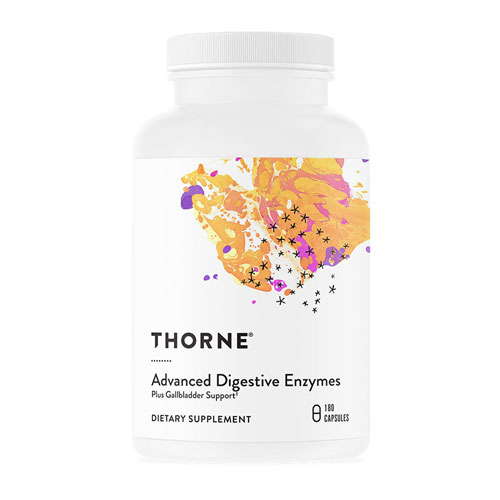
Zinc
What it is:
Zinc is an essential trace mineral, meaning that you must obtain it through diet as your body doesn’t produce it on its own. After iron, zinc is the most abundant trace mineral in your body.
What are the benefits:
While zinc can be found in a range of foods, it may be challenging to get enough of this nutrient through diet alone, which is why some people choose to supplement with zinc. As an essential mineral, zinc plays a myriad of roles in your body, impacting several processes, including enzymatic reactions, immune function, DNA synthesis, protein synthesis, wound healing, and normal growth and development.
As a cofactor for enzymes, zinc assists in over 300 reactions in your body.
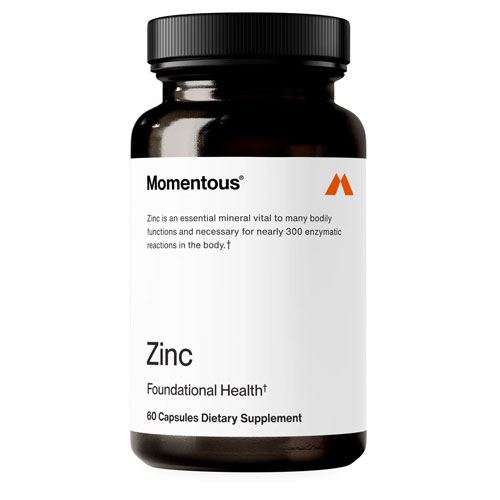
Boron
What it is:
Boron is a non-essential mineral and is considered an ultra-trace nutrient because the human body requires it in only minuscule amounts.
What are the benefits:
We get small amounts of boron in our food, but supplementing with boron may provide health benefits, including improved DHT and testosterone levels, enhanced inflammatory response, and increased vitamin D levels.
Boron may also be beneficial for bone health due to its ability to increase the absorption of vitamin D and calcium.
Vitamin D/K2
What it is:
Vitamin D and Vitamin K2 are fat-soluble vitamins that are crucial to bone health.
What are the benefits:
Both vitamin D and vitamin K2 can be found in the diet, but only in small quantities. Vitamin D is primarily synthesized from exposure to sunlight, while the K2 version of vitamin K is only found in a handful of foods. Therefore, many people find supplementing these nutrients necessary for optimal levels.
In addition to its role in bone health, vitamin D also impacts immunity, mood, and inflammation. Meanwhile, vitamin K2 plays an essential role in blood clotting and heart health.
Dr. Huberman’s take:
As part of his daily regimen, Dr. Huberman takes about 5000 IU of vitamin D per day, along with some K2.
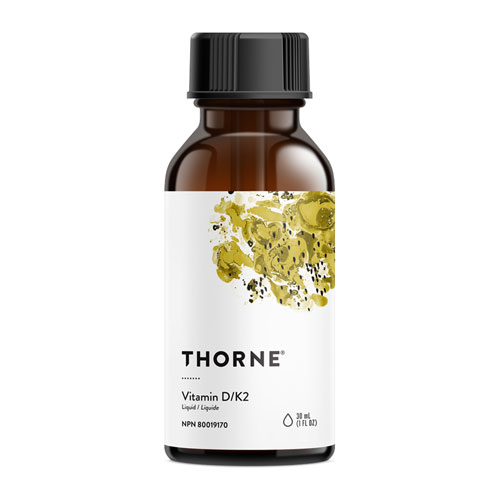
Grape seed extract
What it is:
Grape seed extract (GSE), as the name suggests, is an extract that comes from the seeds of grapes.
What are the benefits:
GSE is rich in antioxidants, including phenolic acids, anthocyanins, flavonoids, and proanthocyanidins.
Research shows that GSE can have a positive influence on several factors impacting heart health, including blood pressure, LDL cholesterol oxidation, and blood flow.
Other potential benefits of GSE include improved liver enzymes, enhanced immune defenses against bacteria and yeasts, improved neurological health, and cognitive enhancement.
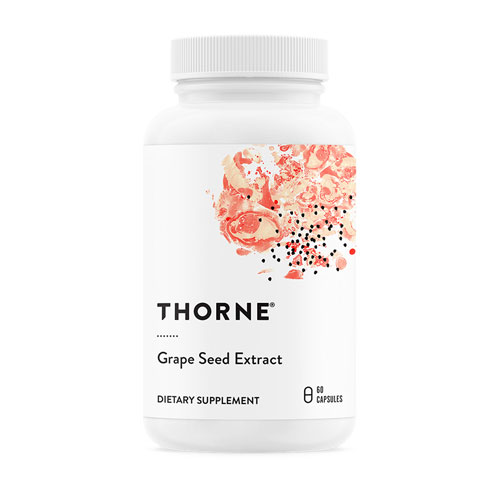
Apigenin
What it is:
Apigenin is a flavonoid antioxidant found in several fruits, vegetables, and herbs.
What are the benefits:
Apigenin has been studied for a range of potential health benefits related to its antioxidant activity, including improved heart health, brain function, inflammatory response, and testosterone production.
It’s also being studied for its potential use as an alternative to antibiotics.
Dr. Huberman’s take:
Huberman takes apigenin, along with magnesium, 30 minutes before sleep each night.
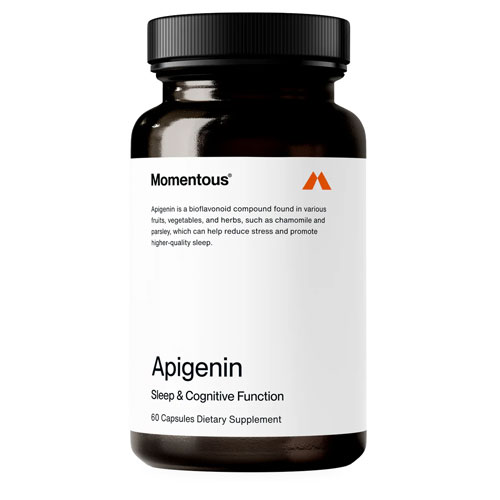
Magnesium
What it is:
Magnesium is a mineral found in a variety of foods, but it is still one of the most common nutrient deficiencies in the United States.
What are the benefits:
As a cofactor for over 300 enzymatic reactions in your body, magnesium plays a crucial role in overall health and well-being. Some of the primary activities of this nutrient include energy production, antioxidant synthesis, nerve impulses, muscle contraction, heart rhythm, and bone health. Magnesium is also an important nutrient for controlling sugar cravings.
Many people benefit from taking magnesium before bed along with their sleep supplements to help wind down the nervous system and relax their muscles, improving sleep quality.
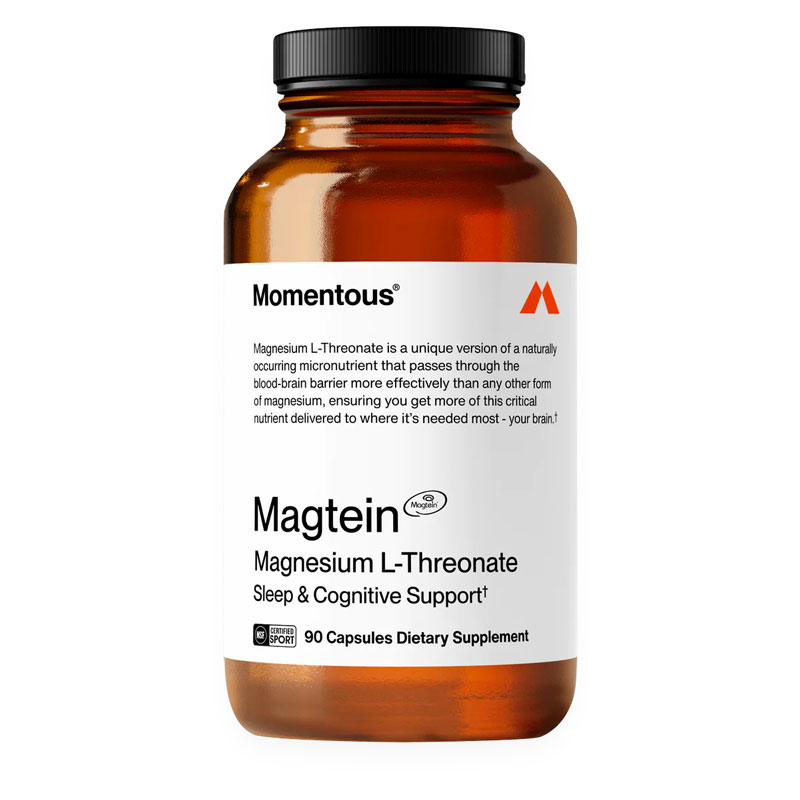
Find what works for you
During the interview, Dr. Huberman indicates that these supplements work for him, but he doesn’t necessarily insist that they’ll work for everybody. He also mentions that he doesn’t have any affiliation with these supplements and that people should research to find the highest-quality options available. Currently, the only brands he has relationships with include AG1 and LMNT (an electrolyte drink).
Related: Dr. Andrew Huberman’s morning routine
As you may have noticed, Dr. Huberman’s supplement list focuses significantly on cognitive function, hormone support, quality sleep, mental health, immune health, and overall physical performance. Optimal health requires that we touch on several aspects of our physiology, which Huberman accomplishes by taking a range of nutrients, herbs, and phytochemicals.
If what you’ve learned here piqued your interest, speak with your doctor or a health professional before beginning with any new dietary supplements. The supplementation protocol that works for you may differ slightly from Dr. Huberman’s supplements, so listen to your body and be sure you’re getting the correct dose for you.

 Published on Jun 27, 2024 by
Published on Jun 27, 2024 by 







